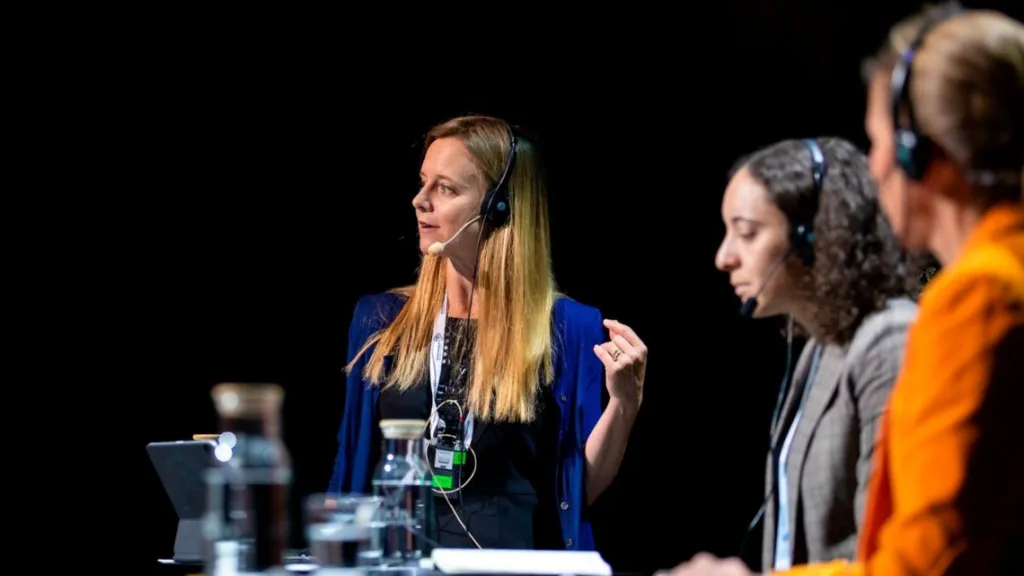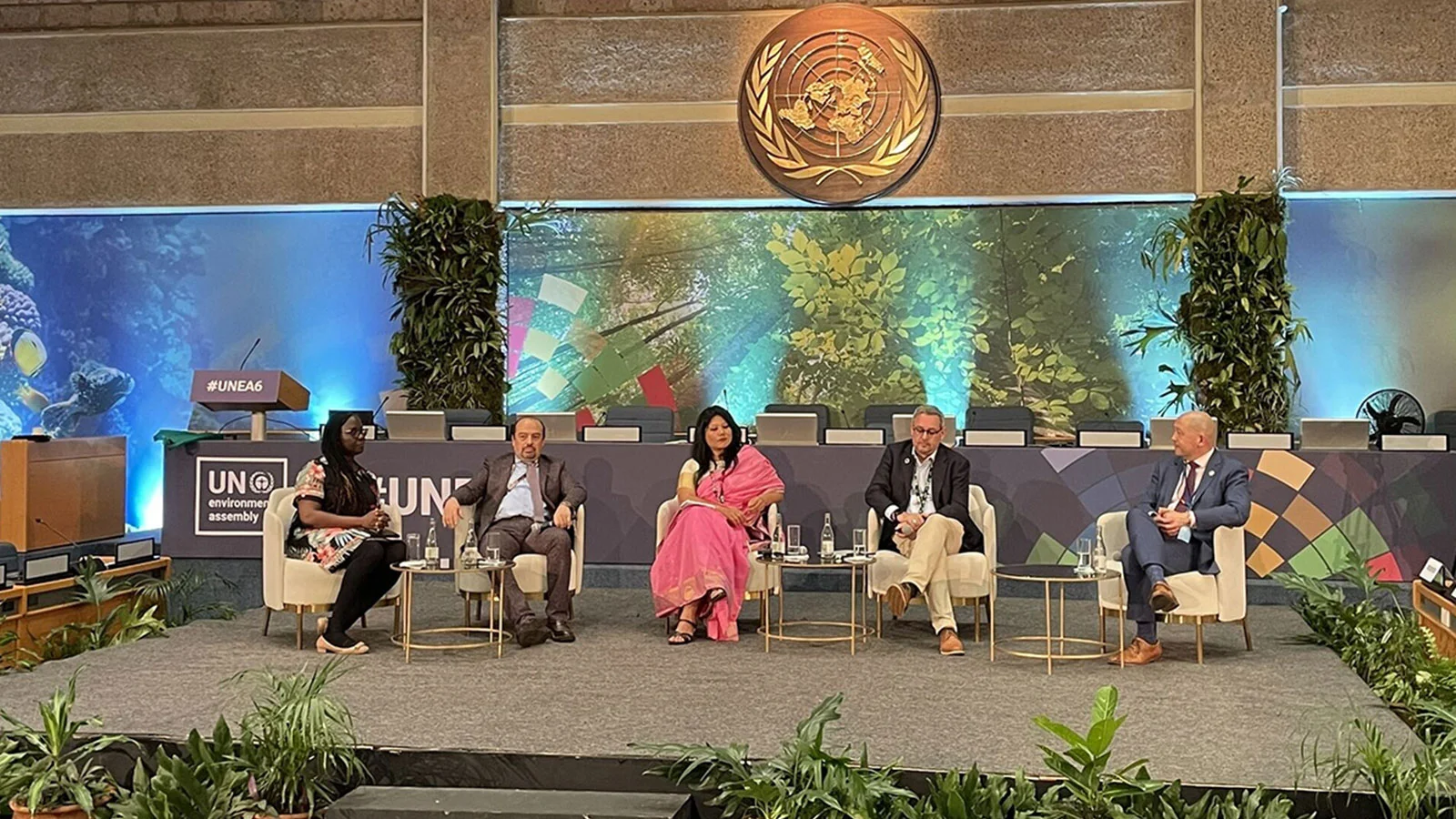Authors
Josip Pervan
The sixth United Nations Environmental Assembly Conference (UNEA 6) in Nairobi, Kenya closed on 1st March 2024 with mixed results. As the world’s preeminent forum for environmental decision-making, UNEA convened under the banner theme: “Effective, inclusive, and sustainable multilateral actions to tackle climate change, biodiversity loss, and pollution.” Over 7,000 delegates representing 182 UN member states, alongside 170 ministers, gathered in the Kenyan capital for the five-day Conference.
Out of the initially proposed 19 resolutions, members finally agreed to adopt 15 resolutions, two decisions, and a ministerial declaration. A notable absence is the resolution on the circular economy, initially proposed by the EU but finally withdrawn because of the lack of consensus. The wording of this resolution included the reference to the work being undertaken by WBCSD and One Planet Network (OPN) on the Global Circularity Protocol(GCP), which aims to create a voluntary framework to address key accountability and policy roadblocks to scale circularity.
While the adoption of resolutions at UNEA 6 was heralded by many as a testament to the enduring strength of multilateralism, the reality is more nuanced. Geopolitical tensions loomed large over several negotiation sessions, casting a shadow on the proceedings. In addition, divides between the Global North and Global South, as well as between sustainability advocates and perceived “laggards,”further complicated discussions and impeded consensus. The adopted resolutions, while notable, largely feature diluted language compared to their initial proposals.
WBCSD’s engagement
As a co-chair of the Business and Industry Major Group (BIMG), WBCSD has been active in coordinating the activities of the Group, coordinating the work on joint statements, and delivering the statements in plenary. WBCSD also co-organized a BIMG high-level dinnerthat featured more than 100 participants, including Inger Andersen, Executive Director of UNEP, and Dennis Francis, President of the UN General Assembly. During the dinner, the Beacon Projects Report was launched. This report compiled by BIMG members and their networks, aims to emphasize the vital contribution of businesses towards advancing the UNEA-6 theme. The report showcases BIMG’s members’ projects that advance sustainability through collaborative and innovative business-led partnerships on both global and local scales.
WBCSD showcased and promoted the work on the GCP and strengthened partnerships with various stakeholders. At the 31st IRP meeting, we discussed the main Protocol’s principles and received valuable feedback to refine our future efforts. At the 10YFP Board and SCP Partner meeting, a panel of experts discussed how the business community can make a key contribution—through the GCP—to sustainable consumption and production. We jointly decided to expand the name of the GCP to Global Circularity Protocol for Business to stress the Protocol’s primary target of addressing business accountability gaps on circularity.
WBCSD signed the Memorandum of Cooperation with the Ministry of Environment of Japan, which lays the groundwork for future collaboration and secures the participation of Japan’s government and private sector in the Protocol development process. The partnerships created can enlarge the GCP’s outreach and incorporate small and medium businesses into its development.
WBCSD co-organized a side event on soil health with the Moroccan government and our member company, OCP. In addition, numerous meetings with stakeholders helped position our work on circularity and enabled us to strike new partnerships and discuss potential collaboration on COP 29, nature action, agriculture, and negotiations on the UN Treaty on Plastics Pollution.
So, what does this all mean for the business community?
As we look forward to a year that will host three COPs (The Climate- COP 29, Biodiversity- Cop16, and Desertification- COP16) and the Summit of the Future during New York Climate Week, ambition from the business community needs to increase sufficiently to meet the multiple challenges we face. As the three major reports (Global Resources Outlook 2024, Global Waste Outlook, and Used Heavy Duty Vehicles and the Environment – A Global Overview of Used Heavy-Duty Vehicles: Flow, Scale, and Regulation) launched during UNEA 6, demonstrate, we are overstepping six of nine planetary boundaries and our lives and livelihoods will dramatically change unless we act fast.
In Nairobi, only a few businesses and members participated in person. We met with some of them to discuss and engage. We believe UNEA needs more involvement from the ambitious business community to promote future, more ambitious outcomes. After all, UNEA meetings often lay the mandate for UN treaties (as was the case for the UN Treaty on Plastics Pollution negotiations) or are precursors to the development of regional or national policies. If the idea of shaping future sustainability trends appeals to you, consider participating in the upcoming UNEA Conference.
UNEA-6 sent a message that “business as usual” is no longer an option. Businesses that embrace sustainability and contribute to solving environmental challenges will be more successful in the future. Embracing the change and seizing the first mover opportunity can significantly contribute to raising competitiveness and improving the business case for sustainability. Businesses will face increasingly stricter environmental reporting requirements to ensure transparency in their supply chains and environmental impact, and the work of WBCSD on developing the Corporate Performance and Accountability System (CPAS) for Carbon, Nature, Circularity, Plastics, and Equity will lead the way in this regard.
We hope to have a more ambitious resolution on circularity containing a clear reference to the GCP work gaveled by the incoming president, H.E. Mr. Abdullah bin Ali Al-Amri from Oman, at the Upcoming UNEA 7 Conference in December 2025. This gives us at WBCSD a clear mandate and anorth-star to work on for the upcoming period while using intermediate global events as welcome checkpoints on that road.
Game on!
Outline
Related
Content

A collaborative step toward ending plastic pollution
9 March, 2022

Three practical Action Priorities that will help businesses unlock sustainable transformation at scale along value chains
24 June, 2022

How to identify high-quality, credible carbon credits: 5 takeaways from the Fundamentals of Decarbonization Masterclass
22 December, 2022

